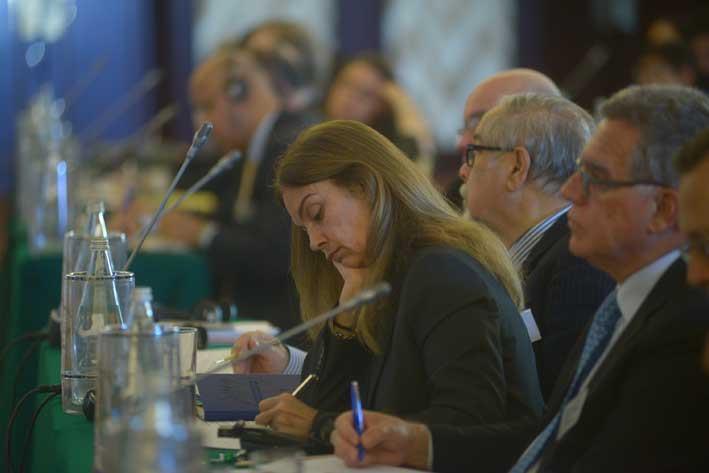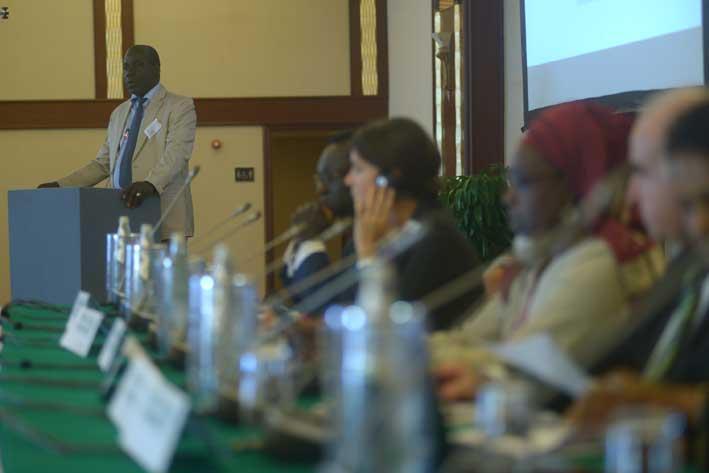Irregular - and dysfunctional - migration from Africa cannot cease without development in the countries of origin and without legal channels regulating the flow of migrants to Europe and back, speakers at a conference focusing on long-term solutions agreed.
The argument was made during an event bringing together representatives of governments and organisations working with African diasporas organised by the Africa-Europe Development Platform (AEDP), whose topic was "from irregularity to stability: strategic and viable actions to prevent irregular and dysfunctional migration."
The opening remarks by Maltese Foreign Minister George Vella, Mali's Minister for Malians Abroad Abdramane Sylla, Eritrea's ambassador to France Hanna Simon and AEDP executive director Gibril Faal had a common theme: that the phenomenon of irregular migration from Africa to Europe could not be effectively addressed without long-term solutions, including development which provides would-be migrants with genuine opportunities in their home country.
 Mr Faal - who lives in the UK but who hails from the Gambia - noted that irregular migration provoked a short-term response focusing on emergency humanitarian aid, primarily in destination countries and border areas, as well as a medium-term response focusing on transit countries, with the apparent aim of dismantling the infrastructure that supports migrant flows.
Mr Faal - who lives in the UK but who hails from the Gambia - noted that irregular migration provoked a short-term response focusing on emergency humanitarian aid, primarily in destination countries and border areas, as well as a medium-term response focusing on transit countries, with the apparent aim of dismantling the infrastructure that supports migrant flows.
"What we tend to miss, of course, is the third element, strategic long-term action," he added.
And he emphasised that it is this long-term action that should receive the most importance.
"Whatever effort we spend on short-term and medium-term measures, we must spend at least ten times as much - in money, time, effort and publicity - on strategic issues," Mr Faal maintained, adding that while countries found themselves focusing on the most urgent matters, they often overlooked what was the most important.
On his part, Dr Vella highlighted the challenges Malta faces as a country on the border between Africa and Europe, emphasising the need for the proportional distribution of migrants and asylum seekers making it to Europe.
 Whilst he noted that the European Commission has been working towards this goal - including by proposing the emergency relocation of asylum seekers from Italy and Greece - he said that he was already sensing that a number of EU member states were registering their disagreement at being allocated migrant quotas.
Whilst he noted that the European Commission has been working towards this goal - including by proposing the emergency relocation of asylum seekers from Italy and Greece - he said that he was already sensing that a number of EU member states were registering their disagreement at being allocated migrant quotas.
He said that ultimately, the EU had to implement a "serious, comprehensive system of legal migration," which catered for both permanent and temporary stays, including the promotion of the concept of circular migration: people moving to Europe to work temporarily before returning back home, hopefully in a better financial situation to improve their position.
But the minister also insisted that development in the countries of origin was of crucial importance.
"Migration will be with us for many years to come. We can make it a win-win situation if we concentrate on development in the countries of origin and by providing legal channels that regulate the flow of migrants to Europe and subsequently back to the countries of origin," he said.
 In his own remarks, Dr Sylla said that his country hoped to stem the flow of people towards Europe, but noted that the situation was very difficult due to widespread poverty and a lack of opportunities.
In his own remarks, Dr Sylla said that his country hoped to stem the flow of people towards Europe, but noted that the situation was very difficult due to widespread poverty and a lack of opportunities.
But the Malian minister also stressed that migrants provided a crucial contribution to the development of their countries of origin through the remittances they sent to relatives back home, noting that the approximately 4 million members of the Malian diaspora contributed hundreds of millions of euros to the Malian economy every year.
(Pictures by Jonathan Borg)